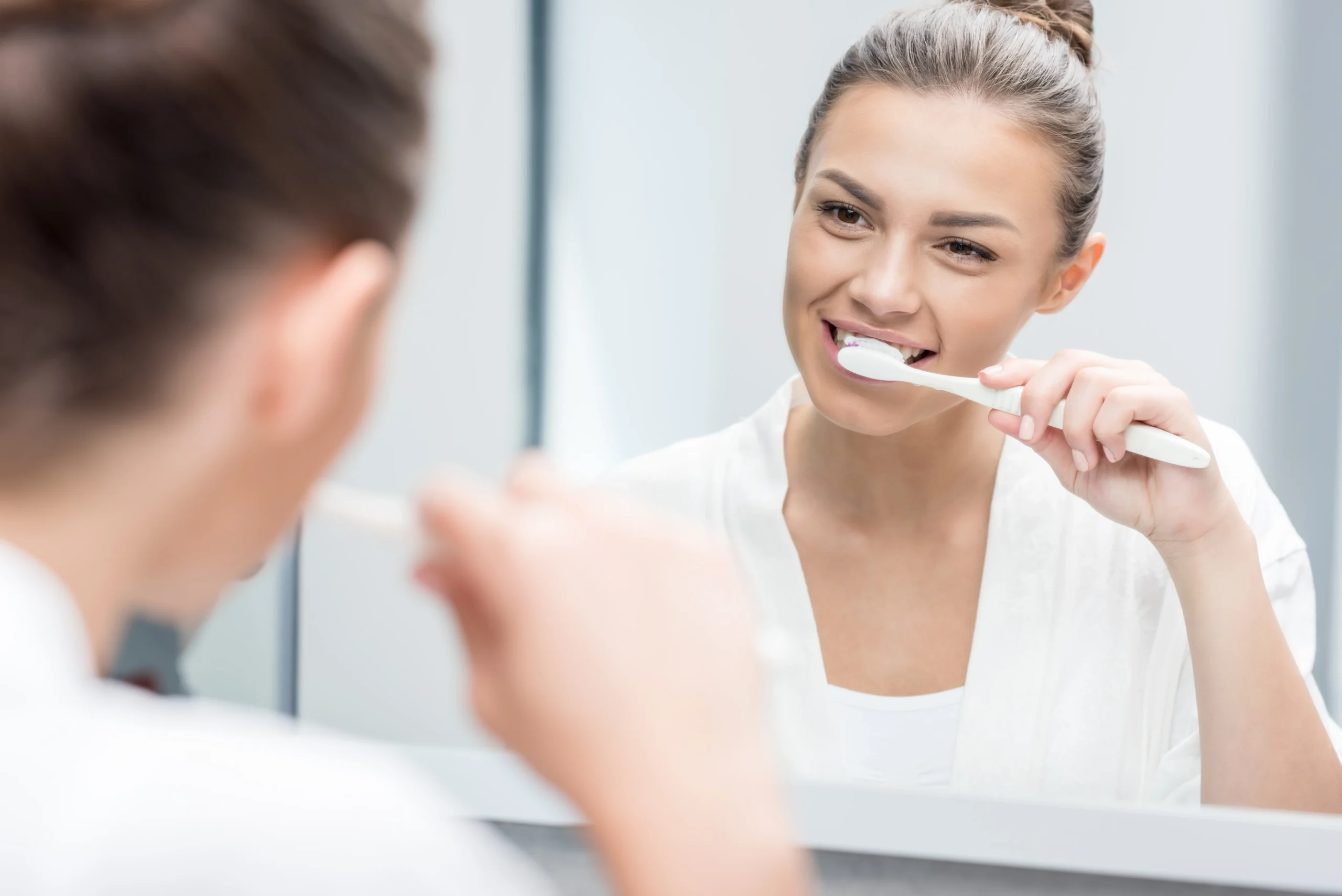How to Fix Overbrushed Teeth
June 27, 2024

Brush your teeth twice daily – you’ve probably heard it a million times. It’s no wonder dentists keep hammering this advice home because brushing is one of the best ways to keep your pearly whites shining bright and your oral health in good condition.
While brushing is indeed a good practice, believe it or not, too much brushing can end up being a bad thing.
Okay, now you must be confused because not only is failing to brush bad, but brushing too much can also spell trouble. As wild as it may sound, it’s true!
What is Overbrushing?
Also known as toothbrush abrasion, overbrushing is the habit of brushing your teeth too hard, too often and too long.
While this habit stems from a place of wanting to maintain a healthy smile, it’s actually a silent smile-killer that can hit those of us who are super enthusiastic about maintaining good oral health.
Suspect you might have fallen into the overbrushing trap? Ask yourself these questions:
- Do you brush your teeth more than 3 times a day, convinced you’re making them cleaner?
- Do you spend too much time (more than 2 minutes) brushing your teeth?
- Are you using a brush with hard bristles?
- Are you giving your teeth a serious scrub-down when brushing?
You might be overbrushing your teeth if you found yourself nodding ‘yes’ to these. While having a beautiful smile is a priority, overbrushing does not guarantee a brighter smile. It’s time you put a stop to this habit as it can lead to some not-so-great consequences for your teeth and gums.
What are the Dangers of Overbrushing?
Here’s the thing about overbrushing – it sounds pretty harmless outwardly.
However, overbrushing can have some serious consequences on your teeth and gums, such as:
Gum Recession
Brushing too hard for too long can make your gums pull away from your teeth. It will expose more of your teeth, making them appear longer, which can ultimately affect your confidence to flash your beautiful smile.
Even worse, receding gums can expose your tooth roots, leading to pain and increased sensitivity while making you more prone to tooth decay around these exposed areas.
On top of that, gum recession can also create pockets between your teeth and gums, forming a breeding ground for bacteria. This can lead to gum disease, which, left untreated, could become an even bigger problem and lead to tooth loss.
Dental Abrasion
The tooth enamel is the hardest substance in our body. Sounds like your teeth are invincible, right? Unfortunately, that’s not true.
Brushing too hard using a hard-bristled toothbrush and abrasive toothpaste can wear down the enamel and the dentin (the layer underneath the enamel). When this happens, it can cause tooth sensitivity and also make your teeth more vulnerable to harmful bacteria and plaque. Dental abrasion will be visible in the form of worn, shiny and yellow or brown spots on your teeth near the gumline.
Tooth Sensitivity
Overbrushing doesn’t just affect the look of your smile. It can also make your teeth sensitive to hot, cold, sweet or sour foods and drinks. This is because the nerve endings in your teeth become exposed or closer to the surface. Even eating and brushing can make you go ouch!
Damaged Fillings or Restorations
It’s not just your natural teeth that are at risk of danger from overbrushing. Fillings, crowns and bridges can all take a hit from overbrushing.
Undue stress from overbrushing can gradually wear down or chip your dental restorations. Damaged dental work will then expose the underlying tooth structure, making your tooth more vulnerable to further damage or decay. You may also need early repair or replacement of these restorations, which can be costly and time-consuming.
Can You Reverse the Effects of Overbrushing?
The sad truth about dental problems like enamel erosion and gum recession is that the effects aren’t reversible. When such problems occur, the only thing you can do is to prevent these problems from getting worse. Left untreated, they could snowball into more serious issues like tooth loss.
For that, it’s important to address the effects of overbrushing early on.
We offer the following treatment options at Melton Dental:
- Fluoride varnish to strengthen the teeth surface.
- Veneers to cover the exposed surface.
- Gum grafting to replace missing gum tissue from significant gum recession.
- Tooth-coloured fillings to cover the eroded tooth enamel.
- Treatment for tooth sensitivity
The best course of treatment will depend on the type and severity of the damage.
How to Prevent Overbrushing
Want to keep your smile bright and healthy without overdoing it? Here are some tips to prevent overbrushing:
- Use the right toothbrush: At Melton Dental, we always recommend using soft-bristled brushes over hard-bristled brushes as they are gentler on your teeth and gums.
- Master the correct brushing technique: Hold your toothbrush at a 45-degree angle to your gums and use gentle, short, circular motions to clean all surfaces of your teeth. Don’t forget to clean your tongue!
- Be gentle with your gums: Yes, cleaning along the gumline is important, but avoid brushing too hard.
- Follow the 2/2 rule: Brush your teeth twice a day for two minutes each time. Think you might go overboard? Set a timer on your phone!
- Replace your toothbrush regularly: Get a new toothbrush or replace the head of your electric toothbrush every 3-4 months or sooner if the bristles are frayed.
- Use a non-abrasive toothpaste: Avoid toothpastes with high abrasive agents that can scratch your enamel, and look for toothpastes with ingredients like fluoride and calcium that strengthen it.
- Avoid brushing immediately after eating: Hold off on brushing for at least 60 minutes after eating or drinking, especially after having something acidic like lemons or soda. You can drink some water or chew sugarless gum in the meantime.
- Be mindful of your habits: In addition to overbrushing, dental abrasion can occur if you use your teeth to open bottles, bite fingernails or chew on pens or ice cubes. Lip or tongue piercings can also wear away at your enamel.
At Melton Dental, we love seeing our patients be enthusiastic about maintaining their beautiful smiles. However, it’s important not to overdo it because your teeth can only handle so much.
If you need help with brushing techniques, have questions that need answering or are showing signs of overbrushing, our friendly dentists are here for you and your smile.





